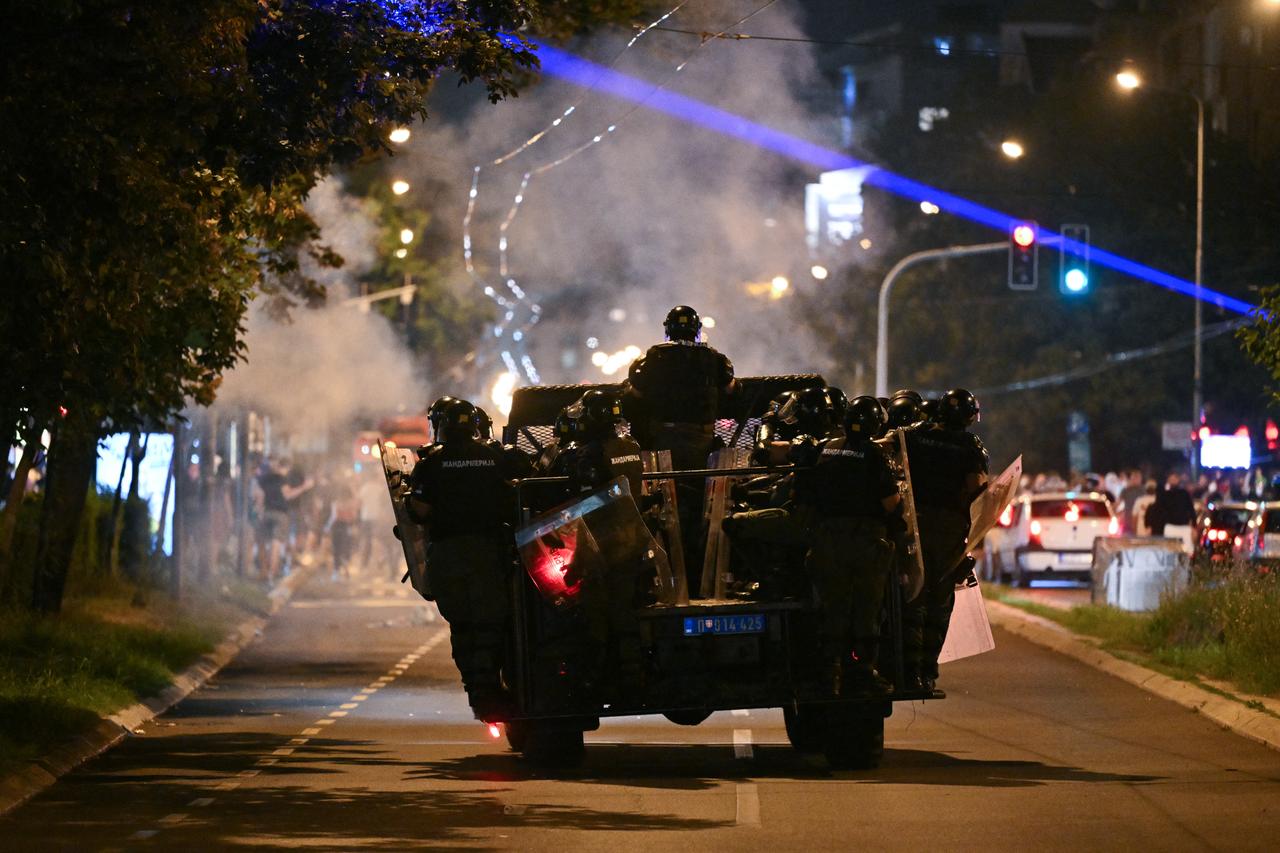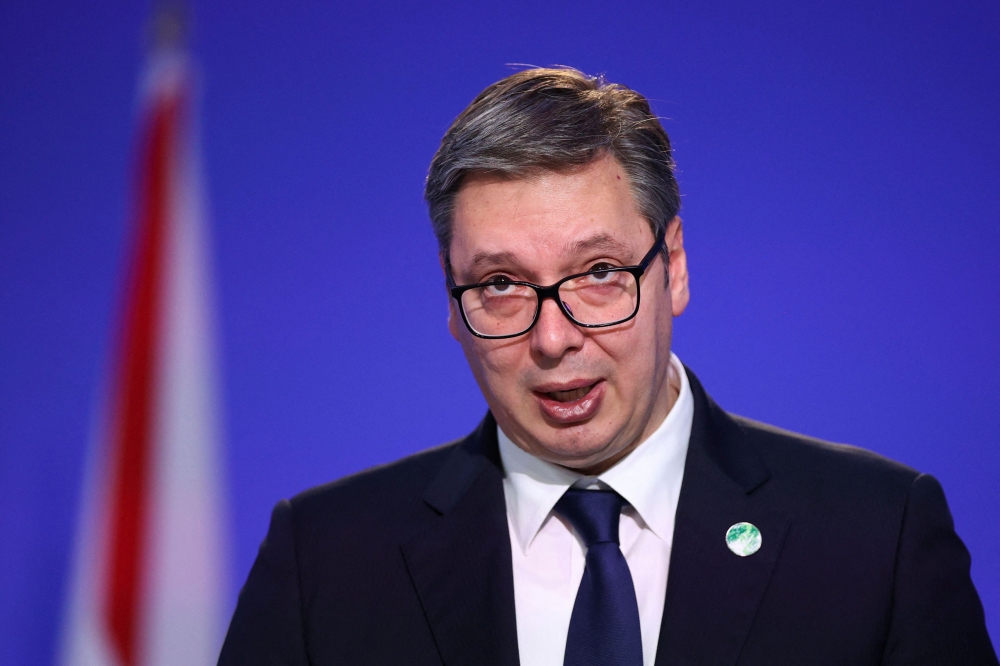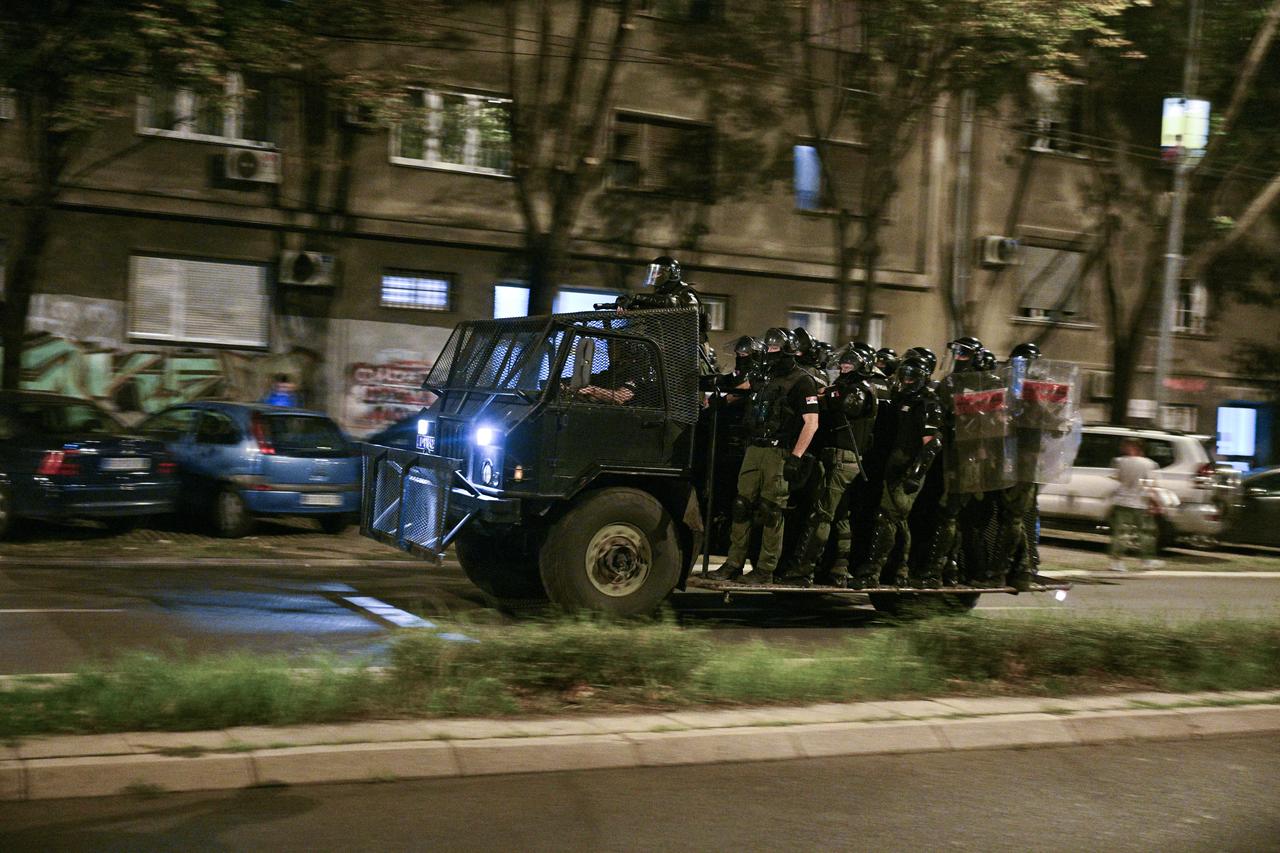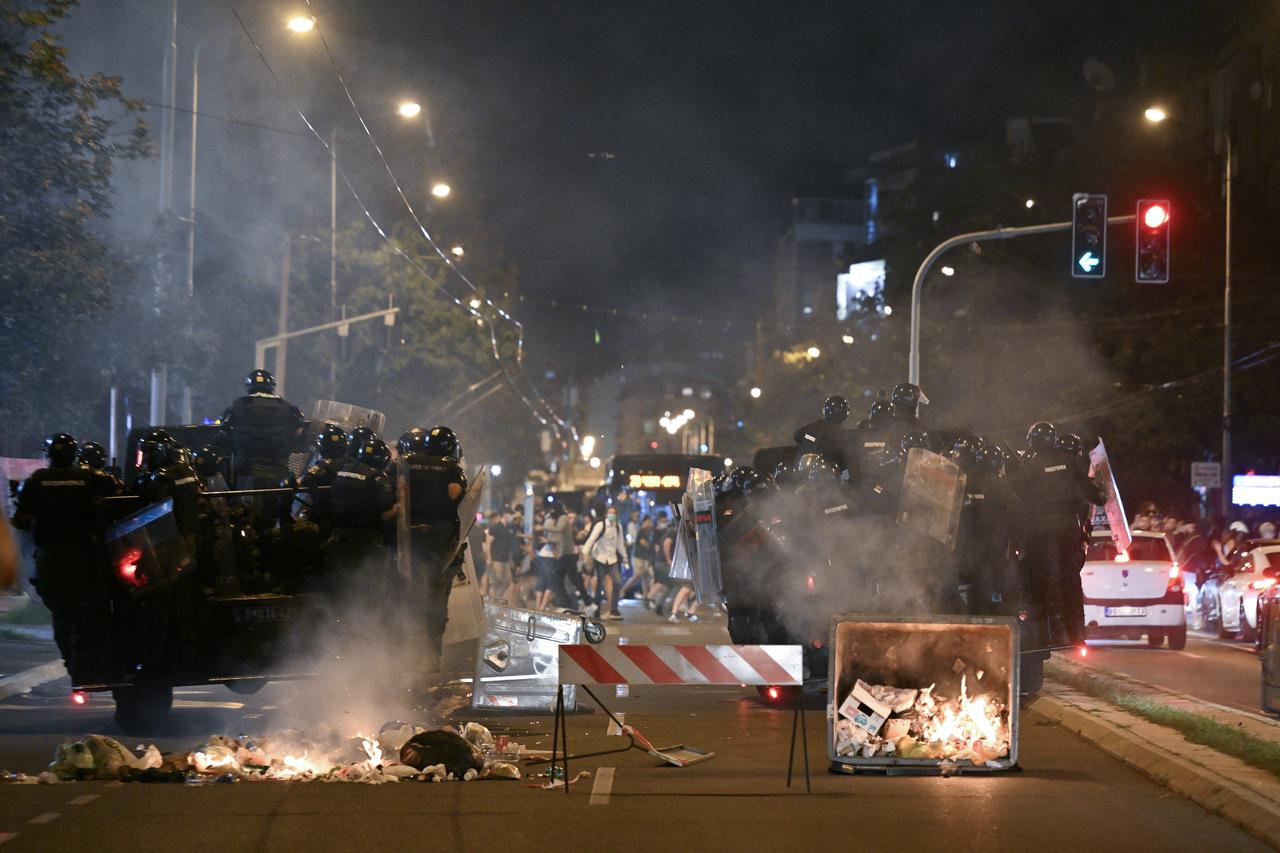
Anti-government protests that have persisted in Serbia for nearly a year escalated into violent clashes Monday, as demonstrators targeted offices of the ruling Serbian Progressive Party. The party is led by President Aleksandar Vucic.
According to a photographer reporting for Agence France-Presse (AFP), protesters threw stones and sound bombs at party offices before being dispersed by Serbian riot police.

The protests began in November 2024 as largely peaceful demonstrations but have grown increasingly confrontational over the past week. Street clashes between government critics and supporters of Vucic’s administration were reported in multiple locations, including the capital Belgrade, Novi Sad, and Valjevo. Dozens were arrested and many were injured. After a relatively calm Sunday, thousands returned to the streets Monday to voice discontent with the government.

The demonstrations originally focused on widespread corruption in the country. On Nov. 1, 2024, in Novi Sad, the roof of a train station, completed only four months earlier, collapsed, killing 16 people. What began as protests demanding accountability for the tragedy expanded to broader anti-government and anti-corruption rallies, particularly involving university students.
The largest demonstration to date took place in March 2025 in Belgrade, drawing approximately 300,000 participants chanting “Corruption kills.” In recent days, anti-government protesters have faced attacks from masked, pro-government groups.

President Vucic warned Sunday that authorities would adopt a tougher approach toward protesters. Observers have called the rhetoric dangerous and urged the European Union to respond.
Nikola Burazer, program director at the pro-European Contemporary Politics Center in Belgrade, said, “It is time for the European Union to understand that the Serbian government operates as an authoritarian regime.” According to Burazer, the Vucic administration has abandoned reforms, democratization, and the rule of law, instead demonstrating its “true authoritarian face” in response to the demonstrations.